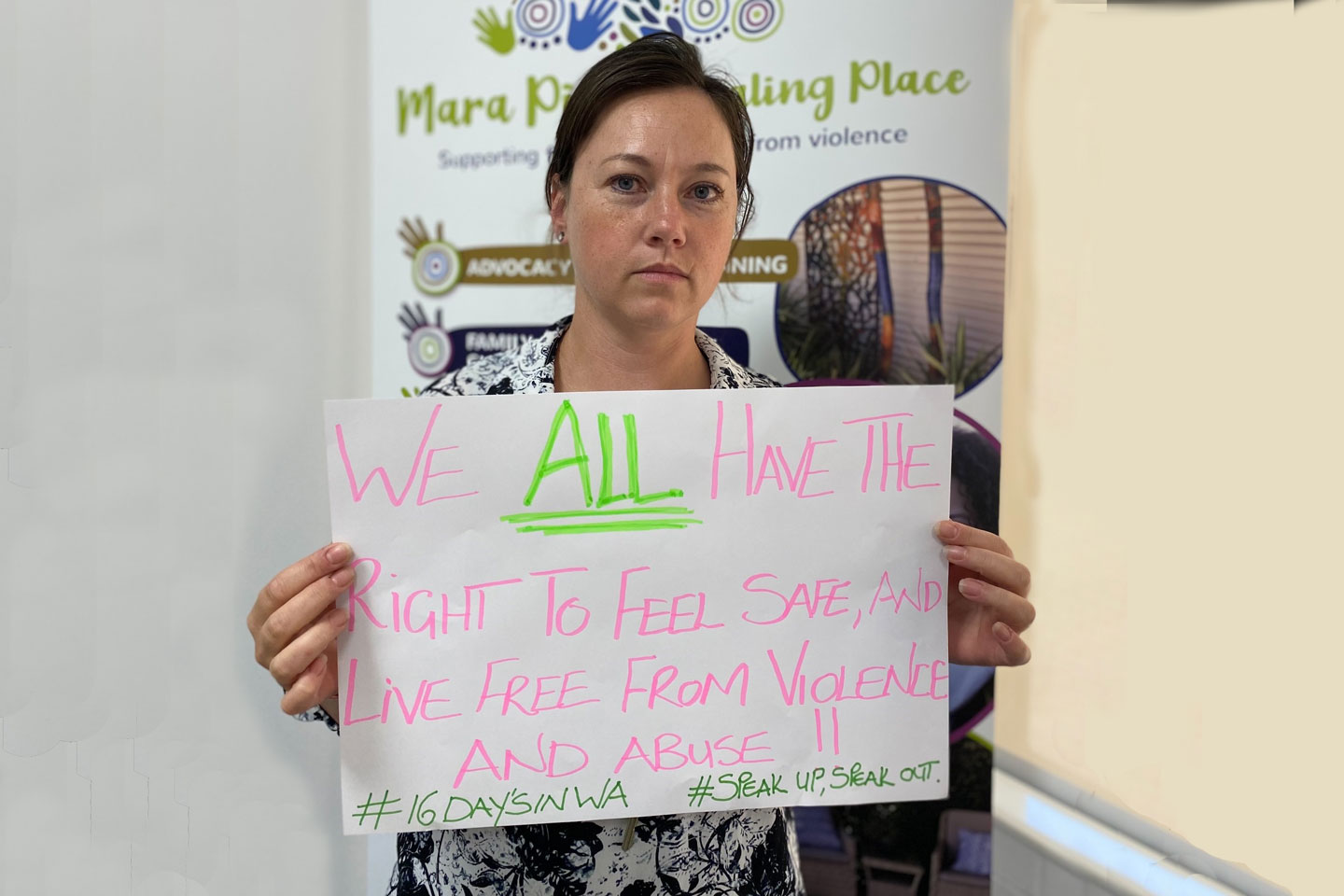

This year’s theme for the 16 Days in WA to Stop Violence Against Women is a straightforward one. Ending violence against women – it’s everybody’s business. Its power is in its simplicity.
Sexual harassment and other forms of violence against women in Australia is a long-standing problem of epidemic proportions, the magnitude of which is now well documented.
The recent WA parliamentary inquiry into sexual harassment in the FIFO mining industry laid bare a disturbing culture on our mine sites, but it would hardly be fair to single out this industry.
Federal Parliament, the Australian Defence Force, universities and the music industry have all had to come to terms with the results of their own investigations. What has become abundantly clear is that sexual harassment and other forms of violence against women exists in all sectors, all industries, all businesses.
Probably even your business.
Which brings us back to this year’s campaign.
Everybody – and every business - is responsible for ending violence against women.
From mining giants down to the local café, every business must take responsibility for creating workspaces that are free from sexual harassment and other forms of violence against women.
In 2018 the Australian Human Rights Commission’s national survey into sexual harassment found that only 17% of people who experienced sexual harassment at work in 5 years prior made a formal report or complaint. Moreover, the report also found in that in those cases where the behaviour was witnessed, 69% of those witnesses did nothing.
Perpetrators, therefore, are not facing any consequences. Women remain unsafe. (And here I would make mention of our LGBTQIA+ community members who face some of the highest levels of violence).
If we are truly to end violence against women, we need a step change in how we discuss and deal with the issue. The recently released National Plan to End Violence against Women and Children sets an ambitious course for the Australian and State Governments to end gender-based violence in a generation.
Outside of our government institutions there is a clear onus on employers to do more.
We know that violence against women is driven by gender inequality and a devaluing of women’s abilities and contributions. Therefore, employers need to ensure they have structures, strategies and policies that explicitly promote gender equality and focus on respect.
I would encourage everyone to visit Our Watch – Workplace Equality and Respect and make use of the free tools and resources that will not only guide you in building safer workplaces, but will help you measure just how well your organization is addressing the issue.
There is a raft of actions that can be taken, from ensuring (and measuring) best practice in recruitment policies to training bystanders on how to act when they see sexual harassment. But it all starts with visible and lasting commitment from the very top.
CEO, Board Chairs, Directors need to be visibly involved in calling out and standing up to end violence against women. This is bigger than our HR managers.
As respected leaders, we need to model respect and absolutely reject harmful gender stereotypes and sexism. We can no longer downplay disrespectful behaviour or accept aggressive behaviour as ‘boys being boys’.
Next week, on Tuesday 29 November the Annual Silent Domestic Violence Memorial March will take place to honour and pay tribute to those who have lost their lives to violence. It is part of the wider 16 Days in WA Campaign and is hosted by the Centre for Women’s Safety and Wellbeing.
I would encourage everybody – every CEO, business owner, Board Chair, General Manager and Director – to join us, to be visible. Your presence is welcome and it is needed – your strong leadership is the cornerstone of organisational and societal change.
Merinda March is the CEO of Hope Community Services, which provides family and domestic violence services, including the Mara Pirni Healing Place in Kalgoorlie, WA’s first family and domestic violence hub.








